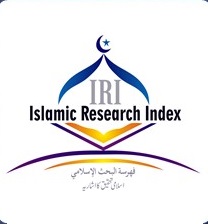Caliphate and Ecumene: Understanding the Global Future by Examining the Historic Past
DOI:
https://doi.org/10.58932/MULF0031Keywords:
Ecumene, economy, sharia, caliphate, empireAbstract
It has been the dream of prophets and philosophers since ancient times that at some culmination of history a new order of human life will envelop the earth. It would establish peace and prosperity for all, a new Golden Age. In fact, it now seems possible that because of technological advance some form of that dream might soon be realized. The elements of authority and compliance essential to its foundation have been brought into existence. The purpose of this paper is neither to endorse nor condemn the various projects to extend a Rule of Law, a unified Economic order, or an Ecumenic atmosphere of thought that would include all peoples and regions of the earth. Yet even though these new structures of global governance are coming to encircle the world, they have also become invisible because of their excessive familiarity. One way to gain perspective on this way of understanding is to provide a context historically, comparatively, and in a legal way. This paper is intended to provide a perspective on what has become an enveloping influence from which it is difficult to find a detached and impartial understanding. It will do so in two ways: First, by looking at moments of incremental development through the historic past. Second, it will view the Western components of global rule by viewing them in comparison with their Islamic counterpart. In what follows, we will examine the two parallel strands of historical development in terms of what was basic to the nature of each. That is, to show how the two realms of Muslim Caliphate and Christian Ecumene operated on almost precisely opposing principles, and how comparing them can give us perspective on the project of global governance today.
References
Abu-Lughod, J. L. (1989). Before European hegemony: the world system AD 1250-1350. Oxford University Press.
Al-Azmeh, A. (2009). Islams and Modernities. Verso Press.
Stephens, W. O. (2024). The Oxford Handbook of Stoicism the Memoranda of Marcus Aurelius.
Baylor, M. G. (Ed.). (1991). The radical reformation. Cambridge University Press.
Bell, D. (2009). The idea of Greater Britain: Empire and the future of world order, 1860-1900. In the Idea of Greater Britain. Princeton University Press.
Bellomo, M. (1995). The common legal past of Europe, 1000–1800 (Vol. 4). CUA Press.
Benton, L., & Ford, L. (2017). Rage for order: the British empire and the origins of international law, 1800–1850. Harvard University Press.
Bulliet, R. W. (1979). Conversion to Islam in the medieval period: an essay in quantitative history. Harvard University Press.
Cardini, F. (2015). Europa e Islam: storia di un malinteso. Gius. Laterza & Figli Spa.
Chitwood, Z. (2017). Byzantine Legal Culture and the Roman Legal Tradition, 867–1056. Cambridge University Press.
Domingo, R. (2010). The new global law. Cambridge University Press.
Donner, F. M. (2010). Muhammad and the believers: At the origins of Islam. Harvard University Press.
Eisenstein, E. L. (2005). The printing revolution in early modern Europe. Cambridge University Press.
Fowden, G. (2013). Before and after Muhammad: the first millennium refocused. Princeton University Press.
Fowden, G. (2020). Empire to commonwealth: consequences of monotheism in late antiquity.
Garnsey, P. (1987). The Roman Empire Economy. Society and Culture.
Flanders, C. (2007). The Divided West by Jurgen Habermas. Yale J. Int'l L., 32, 275.
Hadot, P. (2016). Philosophy as a Way of Life. Comparative religious ethics; Volume 3: Meaning and understanding in comparative religious ethics, 250-262.
Hourani, A. (1983). Arabic thought in the liberal age 1798–1939. Cambridge University Press.
Karsh, E. (2013). Islamic imperialism: A history. Yale University Press.
Kennedy, D. (2016). World of Struggle: How power, law, expertise shape the global economy. Princeton University Press.
Lesaffer, R. (2010). European Legal History: A cultural perspective. Cambridge.
Levenson, J. D. (2012). Inheriting Abraham: The legacy of the patriarch in Judaism, Christianity, and Islam (Vol. 3). Princeton University Press.
Mansfield, H. (1999). Niccolo Machiavelli: Discourses on Livy. University of Chicago.
Misa, T. (2011). Leonardo to the Internet: technology from Renaissance to present. Johns Hopkins.
Nelson, E. (2010). The Hebrew Republic: Jewish sources and European political thought. Harvard University Press.
Ong, W. J., & Hartley, J. (2013). Orality and literacy. Routledge.
Reydams-Schils, G. (2005). The Roman Stoics: Self, responsibility, affection. University of Chicago Press.
Reynolds, G. S. (2020). Allah: God in the Qur'an. Yale University Press.
Rhodes, N. (2000). Articulate Networks: the Self, the Book and the World.‖ The Renaissance Computer: Knowledge Technology in the First Age of Print. Eds. Neil Rhodes & Jonathan Sawday: 184-196.
Schiavone, A. (2012). The Invention of Law in the West. Harvard University Press.
Schiavone, A. (2000). The End of the Past: Ancient Rome and the modern West. Harvard University Press.
Schochet, G. J., Oz-Salzberger, F., & Jones, M. (Eds.). (2008). Political Hebraism: Judaic sources in early modern political thought. Shalem Press.
Slobodian, Q. (2018). Globalists: The end of empire and the birth of neoliberalism. Harvard University Press.
Stein, P. (2004). Roman Law in European History. Cambridge University Press.
Tolan, J. (2019). Faces of Muhammad: Western perceptions of the Prophet. Princeton University Press.
Van Caenegem, R.C. (1989). Birth of the English Common Law. Cambridge University Press.
Wagschal, D. (2014). Law and Legality in the Greek East: Byzantine tradition 381-883. Oxford University Press.
Downloads
Published
How to Cite
Issue
Section
License
Copyright (c) 2024 South Asian Journal of Religion and Philosophy (SAJRP)

This work is licensed under a Creative Commons Attribution-NonCommercial 4.0 International License.









